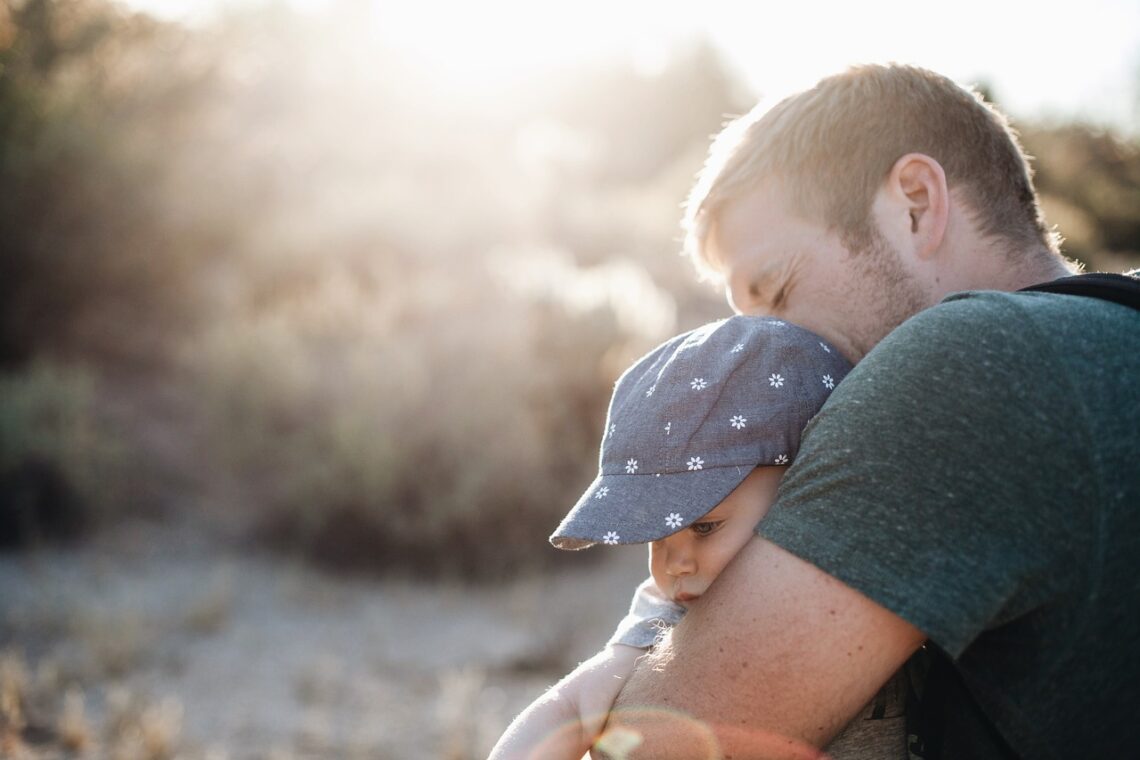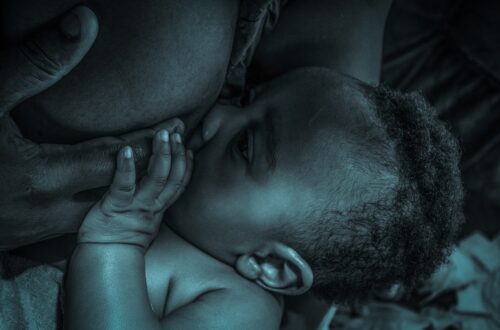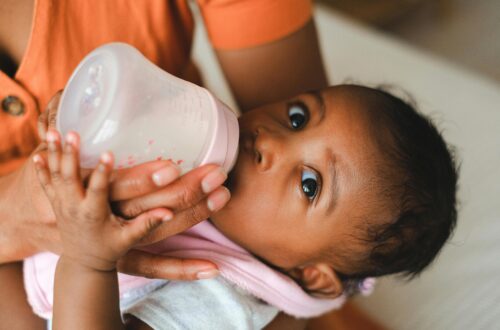
How to Fix Separation Anxiety in Children
When looking at how to fix separation anxiety in children, it is important to understand the root cause of the anxiety. By understanding what our children are feeling, and why, we become better equipped to be able to support them through their tricky moments, and help them to come out stronger.
What causes separation anxiety in young children?
The first thing it is important to know is that separation anxiety is normal. Between the ages of six months and three years old, most children will exhibit signs of separation anxiety in some form.
As babies grow, they are constantly learning. One big development is the understanding that things and people still exist when they are not right there. They now know that although Mummy walked into a different room, she is still somewhere. This understanding with their limited knowledge of things like time, or schedules, can cause children to panic when they are left by their primary caregivers. They know the person they rely on for everything is somewhere, but they don’t know where.
Although it can be a difficult stage to navigate, remember that children have separation anxiety because they feel safe with their carers. Before we look at how to fix it, know that you must have already been doing something right to have become your child’s safe place.
How to fix separation anxiety in young children?
Separation anxiety is something that all young children will go through, and sometimes older children too. there is no quick fix. Although there is comfort in knowing it is a natural stage that will pass, it can be exhausting. Fortunately, there are things that you can do to help your child through this.
- Make the separations gradual. Try asking a friend to come watch your little one, and start by letting them play with your child with you in the room, then pop out for a few minutes. Slowly increase the amount of time that you are gone. As this progresses your child will learn that you always come back.
- Smile when you are saying goodbye. Walking away from your baby while they are crying can be heartbreaking. You might find that you want to cry, too. However, babies and toddlers are social learners. They will learn the most from their primary caregivers. If they see that you are upset when you leave, it reinforces the idea that something is wrong.
- Routines can help your baby or toddler understand what is happening and predict what will happen next. Creating a routine that you consistently stick to when you leave your child and pick them up can help ground them.
- Give them your full focus before you leave and when you return. It is never fun when your toddler has a meltdown at drop-off, but try to leave on a good note. This will help your child feel secure in their bond with you.
Separation anxiety disorder in children
Sometime separation anxiety can be more intense or prolonged. This is called separation anxiety disorder. It can be a sign of other worries or poor mental health.
Causes of separation anxiety disorder in children
Although a child’s environment and experiences can cause separation anxiety disorder, a child’s biology is also a factor.
A child’s hormones help to control different neurological and physical functions throughout their body. An imbalance of two hormones, norepinephrine and serotonin, can make a child more prone to anxiety.
This means, that if your child is naturally more anxious, it may just be the way their brain is wired. It is worth thinking about environmental factors too. If there are big life changes or stresses your child may need extra support.
How to support a child with separation anxiety disorder
- Teach coping mechanisms. There are lots of great recourses that offer a plethora of coping strategies you can teach your child to use when they are feeling anxious. Here is a list of coping strategies from Barnados, which you may find helpful.
- Don’t avoid situations that your child finds difficult. Of course, you may want to take small steps. At times, you may choose to give your child some downtime rather than pushing them. However, don’t let their anxiety completely control what you do and don’t do. If your child is anxious about being left, and you don’t leave them, they will remain convinced that being separated from you means something bad will happen. Being separated from you is imperative for them to understand that separation is okay, and that they can handle it.
- Keep your word. Anxious children often worry about whether their parents will come back. If you have a history of keeping your word, your child will trust you to pick them up again as promised. If you are running late for a pick up, it is worth calling or emailing the carer or teacher so that they can explain to your child.
- Try to anticipate situations that your child may find difficult. Talk them through what to expect and what they should do. Make sure they know the adults are there that they can turn to for help if needed.
- Remember to look after yourself. Having a child who will not leave your side can be exhausting. To be strong for them, it is important that you care for yourself.
When to seek help
Like some people, you may feel that there is a stigma around poor mental health. You may be nervous about seeking outside help, but there is no reason to be.
If separation anxiety is impacting your child’s ability to do daily tasks, please don’t hesitate to reach out to someone. There are people trained to work with children who are struggling with anxiety and other mental health issues. The sooner we acknowledge that it is okay to need support sometimes, the better for all of our children.
Where to get help
There are a few different places that provide support for parents trying to fix separation anxiety disorder in their children. Although there may not be quick, or easy solutions, they may be able to support you and your child, and help move things in the right direction.
- School: Most schools have workers who are trained to support children who are struggling with things like anxiety. They can also help to connect you with other charities or organisations who may be able to help.
- Local doctors surgery: General practitioners are able to support mental, as well as physical, health. They may not offer hands on help, but should be able to refer you to someone who can.
- Help lines: If you search on the internet, you are likely to find both local and national help lines that are able to provide support to children and young people who are struggling with issues like anxiety.
A final note
As we have discussed, a certain amount of separation anxiety in children is normal, and will usually fix itself in time. If your child is struggling and it is impacting their life in a negative way, or just not improving, don’t be afraid to reach out for help. We all need support sometimes.
Separation anxiety isn’t easy, but hang in there. This too will pass.
I wish you all the peace,
Hannah Louise
References
Cleveland Clinic. “Hormones: What They Are, Function & Types.” Cleveland Clinic, 23 Feb. 2022, my.clevelandclinic.org/health/articles/22464-hormones.
Contributing, Taylor,. “Separation Anxiety in Toddlers.” What to Expect, WhattoExpect, 15 Nov. 2016, www.whattoexpect.com/toddler-behavior/toddler-separation-anxiety.aspx#causes. Accessed 24 Mar. 2025.
Goldstein, Clark. “What to Do (and Not Do) When Children Are Anxious.” Child Mind Institute, Child Mind Institute, 2 Feb. 2016, childmind.org/article/what-to-do-and-not-do-when-children-are-anxious/.
Mayo Clinic. “Separation Anxiety Disorder.” Mayo Clinic, Mayo Foundation for Medical Education and Research, 5 Apr. 2021, www.mayoclinic.org/diseases-conditions/separation-anxiety-disorder/symptoms-causes/syc-20377455.
NHS. “Separation Anxiety.” Nhs.uk, 7 Dec. 2020, www.nhs.uk/conditions/baby/babys-development/behaviour/separation-anxiety/.
“Older Kids and Separation Anxiety: How It Happens and What to Do | Riley Children’s Health.” Www.rileychildrens.org, www.rileychildrens.org/connections/older-kids-and-separation-anxiety-how-it-happens-and-what-to-do.
Swanson, Wendy. “How to Ease Your Child’s Separation Anxiety.” HealthyChildren.org, 29 July 2021, www.healthychildren.org/English/ages-stages/toddler/Pages/Soothing-Your-Childs-Separation-Anxiety.aspx.
Watson, Renee. “Separation Anxiety Disorder in Children.” Www.nationwidechildrens.org, 1 Mar. 2023, www.nationwidechildrens.org/conditions/health-library/separation-anxiety-disorder-in-children.
Zara Jethani. “The Impact of Hormone Imbalances on Neurological Health and Memory – Pacific Neuroscience Institute.” Pacific Neuroscience Institute, 12 July 2024, www.pacificneuroscienceinstitute.org/blog/brain-health/the-impact-of-hormone-imbalances-on-neurological-health-and-memory/.








